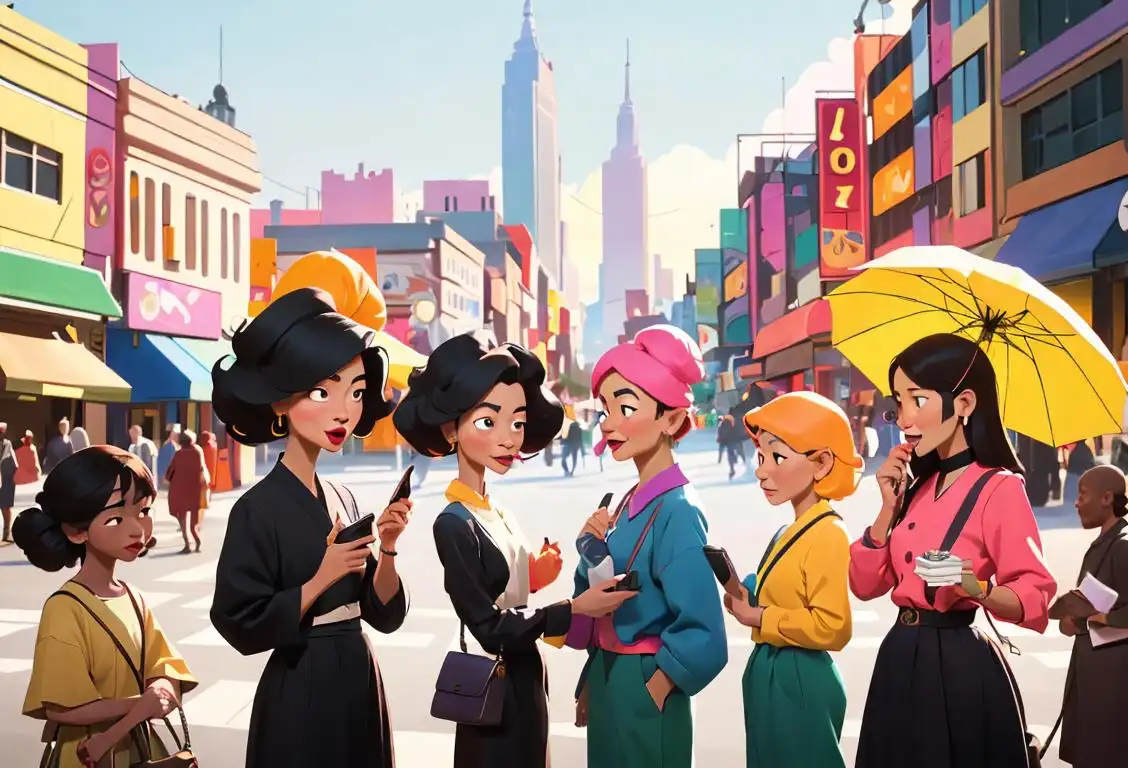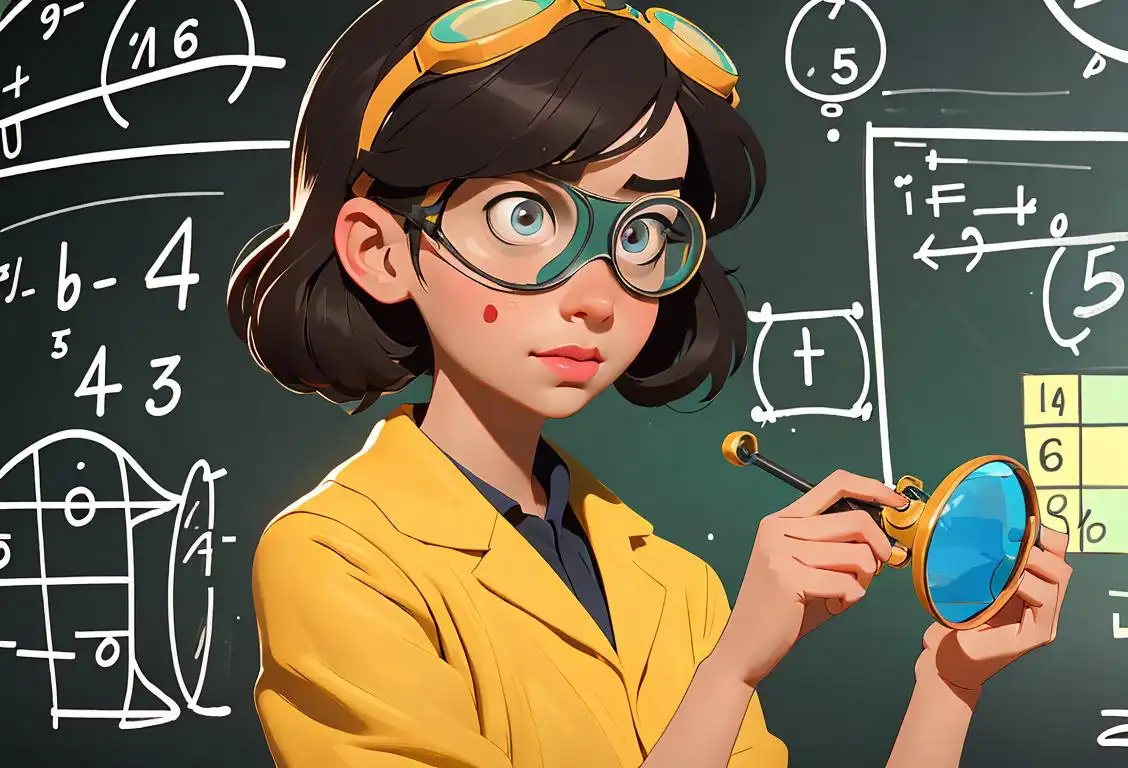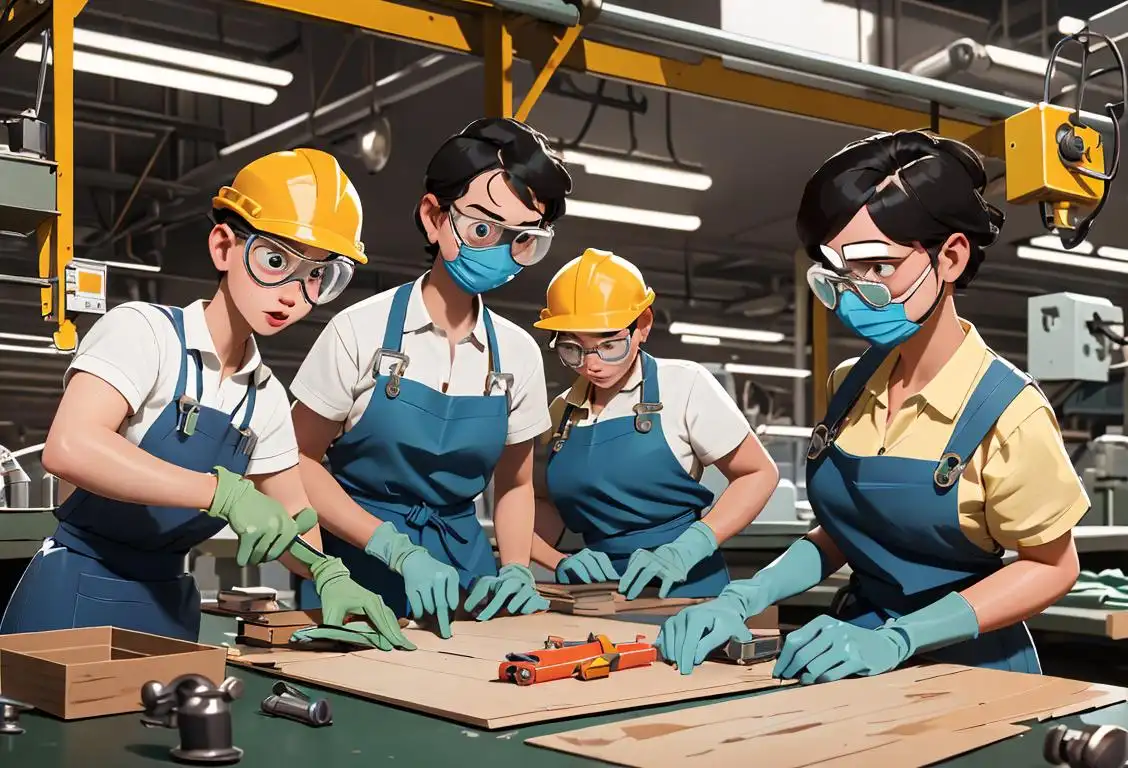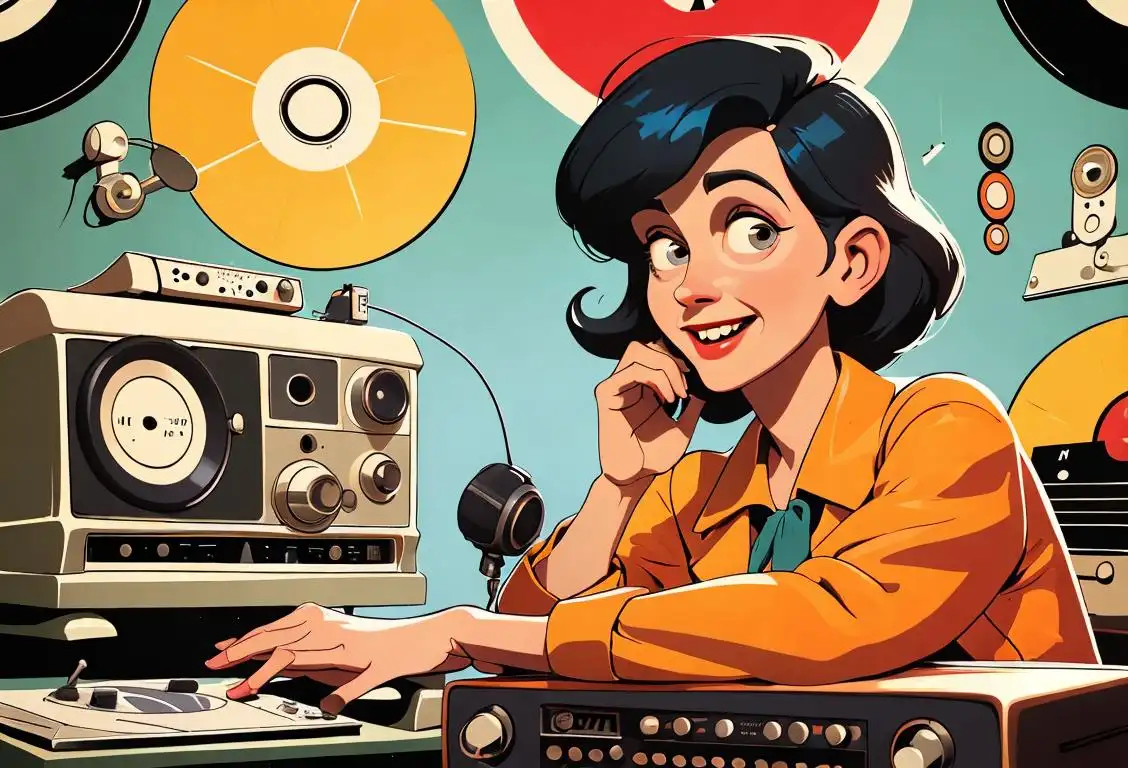National Barcode Day

Welcome to the wacky world of National Barcode Day! Prepare to scan your way through this delightful celebration of those quirky black lines we see on practically everything these days. Whether you're a barcode enthusiast or just curious about the history behind this modern marvel, you're in for a treat. So grab your scanner and let's dive into the fascinating universe of barcodes!
When is Barcode Day?
It's national barcode day on the 1st November.
The Birth of Barcodes
Picture this: It's 1973, and a group of supermarket executives are huddled around a table, pondering a problem that has been plaguing the retail industry for decades - how to efficiently track and manage inventory. Then, like a stroke of genius, a young engineer named George Laurer proposes a solution: the barcode!
Little did Laurer know that his invention would revolutionize not only the retail world but also countless aspects of our daily lives. The simplicity and efficiency of the barcode made it an instant hit, enabling businesses to streamline operations, improve inventory control, and track products from production to sale.
From the Supermarket to Cyberspace
Fast forward a few decades, and barcodes have expanded far beyond the aisles of grocery stores. With the rise of online shopping and e-commerce, barcodes have become an integral part of the digital landscape. From scanning boarding passes at the airport to tracking packages on their journey to your doorstep, barcodes have become a versatile tool that helps us navigate the modern world.
But the magic doesn't stop there! Barcodes have also found their way into the realm of art and self-expression. Some creative souls have turned barcodes into unique designs and patterns, creating beautiful pieces that are an ode to this ubiquitous symbol of modern life.
Fun Facts about Barcodes
Did you know that the very first item ever scanned with a barcode was a pack of chewing gum? On June 26, 1974, a humble pack of Wrigley's Juicy Fruit was the guinea pig for this groundbreaking technology. Talk about making history, one stick of gum at a time!
History behind the term 'Barcode'
1932
The Birth of the Barcode Idea
In 1932, American inventor Wallace Flint came up with the idea of a machine-readable code to automatically capture product information at checkout counters. Flint's idea was inspired by the tedious manual process of logging item information and led him to explore ways to automate this process.
1949
First Prototype Attempts
In 1949, Bernard Silver, a graduate student at Drexel Institute of Technology, overheard a conversation between a supermarket executive and a dean about the need for a system to automatically read product information. This sparked Silver's interest, and he approached his friend, Norman Joseph Woodland, to collaborate on developing a solution. Together, they began experimenting with various ideas but struggled to find a practical implementation.
1952
Cracking the Barcode Concept
In 1952, after a few years of trial and error, Bernard Silver and Norman Joseph Woodland made a significant breakthrough. They developed a concept that used a linear arrangement of concentric circles, resembling a bullseye. The machine-readable pattern could be scanned and deciphered by a light source and sensor system. This idea laid the foundation for the modern barcode.
1959
Patent Application and IBM's Involvement
In 1959, Bernard Silver and Norman Joseph Woodland filed a patent application for their barcode concept. To further advance their invention, the duo approached IBM for support. IBM recognized the potential of the barcode system and assigned George Laurer to develop a practical implementation of the barcode. Laurer later played a pivotal role in refining the design and developing the Universal Product Code (UPC).
1974
First Commercial Use of Barcodes
The first commercial use of barcodes took place in 1974 at a Marsh's supermarket in Troy, Ohio. A pack of Wrigley's Juicy Fruit chewing gum became the first product ever to be scanned using the Universal Product Code (UPC) barcode system. The successful implementation of barcodes in the retail industry revolutionized inventory management and streamlined the checkout process.
1984
International Adoption of Barcodes
By 1984, barcodes had gained worldwide recognition as a standard method for product identification. The International Article Numbering Association (EAN) was established to promote barcode usage internationally. The EAN system expanded the capabilities of barcodes to accommodate varying country codes, manufacturer codes, and product codes, thus facilitating seamless global trade.
Did you know?
Did you know that barcodes are read by scanning the white spaces between the black lines? It's like deciphering a secret code, but instead of cracking a spy's message, you're just buying groceries!Tagged
technology retail inventionFirst identified
1st November 2017Most mentioned on
1st November 2017Total mentions
4Other days
Barcode Day
Telephone Day
Video Games Day
Karjon Day
Battery Day
Stem Day
Manufacturing Day
Radio Day
Splurge Day
Stockpile Website A Day








